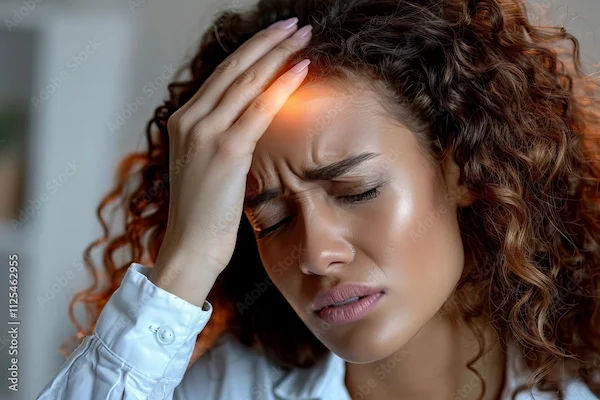Meniere’s Disease: Everything You Need to Know
Discover the causes, symptoms, diagnosis, and treatment options for this inner ear disorder. Learn how to manage vertigo, hearing loss, and tinnitus effectively.

Written by Dr.Sonia Bhatt
Last updated on 3rd Jul, 2025

Meniere's disease is a disorder of the inner ear that can profoundly impact an individual's quality of life. It is characterised by episodes of vertigo, hearing loss, tinnitus (ringing in the ears), and a feeling of fullness in the ear. Named after the French physician Prosper Ménière, who first described the condition in 1861, Meniere's disease affects the inner ear's balance and hearing mechanisms. This article will delve into the symptoms, causes, diagnostic criteria, and treatment options for Meniere's disease, providing a comprehensive overview for those seeking to understand this condition better.
What Is Meniere’s Disease?
Meniere’s Disease is a disorder of the inner ear that leads to episodes of vertigo (a spinning sensation), hearing loss, tinnitus (ringing in the ears), and a feeling of fullness or pressure in the ear. It is considered a type of vestibular disorder, affecting both hearing and balance, and can vary in severity from mild discomfort to life-altering episodes. The disease typically affects one ear, but in some cases, it can involve both ears over time.
While the exact cause of Meniere’s Disease remains unclear, it is believed to be linked to an abnormal buildup of fluid in the inner ear, which disrupts the normal functioning of the cochlea (responsible for hearing) and the vestibular system (responsible for balance). This fluid buildup, known as endolymphatic hydrops, can lead to episodes of dizziness, hearing loss, and other related symptoms.
Key Symptoms of Meniere’s Disease
Meniere’s Disease is characterised by a set of distinct symptoms that often occur in unpredictable episodes. These symptoms can vary in severity and duration, and not everyone with the condition will experience all of them. The primary symptoms include:
1. Vertigo
One of the hallmark symptoms of Meniere’s Disease is vertigo, a sudden and intense feeling of dizziness or spinning. These episodes can last from a few minutes to several hours and may be accompanied by nausea, vomiting, and difficulty maintaining balance. Vertigo can be disabling and may prevent individuals from functioning normally during an episode.
2. Hearing Loss
Hearing loss in Meniere’s Disease often fluctuates and may come and go, particularly during an episode of vertigo. Over time, the hearing loss may become more persistent. It typically affects lower frequencies first, but as the disease progresses, high-frequency hearing loss can occur as well. In some cases, permanent hearing loss may result.
3. Tinnitus (Ringing in the Ears)
Tinnitus, or ringing in the ears, is another common symptom of Meniere’s Disease. It can manifest as a constant or intermittent ringing, buzzing, or roaring sound in the affected ear. For some individuals, tinnitus can be mild and tolerable, but for others, it can be loud and persistent, further complicating the condition.
4. Ear Fullness or Pressure
Many people with Meniere’s Disease experience a sensation of fullness or pressure in the affected ear, which can be uncomfortable and sometimes painful. This feeling may be present before, during, or after an episode of vertigo.
Possible Causes and Risk Factors
The exact cause of Meniere's disease is not well understood, but it is believed to result from a combination of factors that affect the inner ear's fluid balance. Several potential causes and contributing factors include:
Fluid Buildup (Endolymphatic Hydrops): The primary theory is that the inner ear accumulates too much fluid, leading to an increase in pressure within the ear structures. This fluid buildup disrupts the normal functioning of both the cochlea and the vestibular system.
Genetics: There is evidence that Meniere’s Disease may run in families, suggesting a genetic predisposition to developing the condition. However, no specific gene has been identified as the sole cause.
Autoimmune Response: Some researchers believe that Meniere’s Disease may be linked to an autoimmune response, where the body’s immune system attacks the inner ear, causing inflammation and fluid buildup.
Infections or Viral Infections: In some cases, viral infections or other ear infections can lead to Meniere’s Disease. However, these instances are relatively rare.
Trauma or Injury: Physical injury to the head or ear can sometimes trigger Meniere’s symptoms.
Other risk factors may include age (the condition is most commonly diagnosed in people between the ages of 40 and 60), gender (it is slightly more common in women), and environmental factors such as high salt intake, stress, and excessive alcohol consumption.
Diagnosis of Meniere's Disease
Diagnosing Meniere's disease can be challenging due to its variable symptoms and overlap with other conditions that affect the inner ear. A comprehensive evaluation by an otolaryngologist (ear, nose, and throat specialist) is essential for an accurate diagnosis. The diagnostic process typically involves:
Medical History: The doctor will take a detailed medical history, including a description of symptoms, their frequency, duration, and any potential triggers. Information about family history and previous health conditions is also important.
Physical Examination: A physical examination, including an assessment of hearing and balance, will be conducted. The doctor may use tools like an otoscope to examine the ear canal and eardrum.
Hearing Tests: Audiometric tests, such as pure-tone audiometry and speech discrimination tests, are performed to assess hearing function and identify any hearing loss patterns characteristic of Meniere's disease.
Balance Tests: Balance function tests, such as videonystagmography (VNG) and electronystagmography (ENG), evaluate the inner ear's balance mechanisms. These tests measure eye movements in response to changes in head position or visual stimuli.
Imaging Studies: Imaging studies, such as magnetic resonance imaging (MRI) or computed tomography (CT) scans, may be ordered to rule out other conditions that could cause similar symptoms, such as vestibular schwannoma (acoustic neuroma) or other structural abnormalities.
Electrocochleography (ECoG): This specialised test measures electrical activity in the inner ear in response to sound stimuli. It can help detect abnormal fluid levels and pressure in the inner ear, supporting a diagnosis of Meniere's disease.
Treatment and Management of Meniere's Disease
There is no cure for Meniere’s Disease, but several treatment options can help manage its symptoms and prevent episodes from occurring. Treatment is often individualised, depending on the severity of symptoms, the frequency of episodes, and the overall health of the patient.
1. Lifestyle Modifications
Making certain lifestyle changes can help reduce the frequency and severity of Meniere's disease symptoms. These modifications include:
Low-Salt Diet: Cutting back on salt can help prevent fluid buildup in the body, which may help reduce the pressure in your inner ear and ease symptoms like vertigo. A low-salt diet can also help with overall fluid balance.
Stay Hydrated: Drinking plenty of water is crucial. Good hydration helps maintain the body's fluid balance, which can be especially important for managing the fluid levels in the inner ear.
Limit Caffeine and Alcohol: Both caffeine and alcohol can disrupt the balance of fluids in the body, potentially making symptoms worse. Reducing or eliminating these from your diet may help keep symptoms under control.
Stress Management: Stress can trigger or intensify Meniere’s symptoms. Incorporating stress-relief practices like yoga, meditation, or even simple deep breathing exercises into your routine can help keep your body and mind in a calmer state, reducing the frequency of flare-ups.
2. Medications
Several medications can help alleviate symptoms of Meniere's disease, including:
Diuretics: Diuretic medications help reduce fluid buildup in the body, which may help decrease inner ear pressure and alleviate symptoms.
Antiemetics: Medications like meclizine or dimenhydrinate can help relieve nausea and vomiting associated with vertigo.
Benzodiazepines: Drugs such as diazepam or lorazepam can help reduce vertigo symptoms by stabilising the vestibular system.
Corticosteroids: These medications can help reduce inflammation and alleviate symptoms, particularly during acute attacks.
3. Non-Invasive Therapies
Various non-invasive therapies can help manage Meniere's disease symptoms, including:
Vestibular Rehabilitation: Physical therapy exercises designed to improve balance and reduce dizziness.
Hearing Aids: For individuals with significant hearing loss, hearing aids can amplify external sounds and improve hearing clarity.
4. Surgical Interventions
In severe cases of Meniere's disease that does not respond to conservative treatments, surgical interventions may be considered. These include:
Endolymphatic Sac Decompression: A surgical procedure to reduce fluid pressure in the inner ear by creating a small drainage pathway.
Vestibular Nerve Section: Cutting the vestibular nerve to reduce vertigo while preserving hearing.
Labyrinthectomy: Removing the balance part of the inner ear, typically reserved for cases with profound hearing loss in the affected ear.
Conclusion
Meniere's disease is a complex and often debilitating condition that can significantly impact an individual's quality of life. Understanding the symptoms, potential causes, and treatment options is essential for effective management. While there is no cure, various strategies can help alleviate symptoms and improve daily functioning. If you suspect you have Meniere's disease, seeking a comprehensive evaluation and personalised treatment plan from a healthcare provider is crucial. With the right approach and support, individuals with Meniere's disease can lead fulfilling lives despite the challenges posed by this condition.
Consult Top ENT Doctor
Consult Top ENT Doctor

Dr. Gurleen Kaur
Ent Specialist
14 Years • MBBS ,MS -ENT
New Delhi
Apollo 24|7 Clinic - Delhi, New Delhi

Dr. Shankar B G
Ent Specialist
25 Years • MBBS, MS (OTO-RHINO-LARYNGOLOGY)
Bengaluru
Smruthi ENT & Multi Speciality Centre, Bengaluru

Dr. Nitin Mittal
Ent Specialist
8 Years • MBBS, MS (ENT)
Kolkata
HOLISTIC ENT AND DENTAL SUPERSPECIALITY CLINIC, Kolkata

Dr. Sumit Maheshwari
Ent Specialist
4 Years • MBBS, MS
Mumbai
GT Hospital, Mumbai

Dr. Khushboo Goel
Ent Specialist
6 Years • MBBS, MS (Oto- RhinoLaryngology) , DNB (Oto- RhinoLaryngology)
New Delhi
Dr Hans centre for ENT, Hearing Care and Vertigo, New Delhi